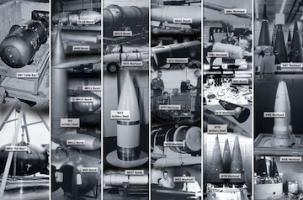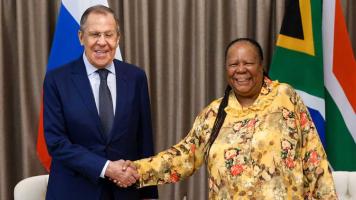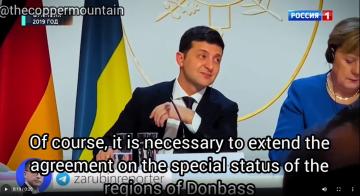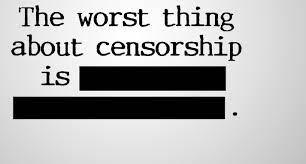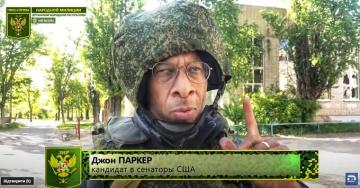Signing of the SALT treaty, Richard Nixon and Leonid Brezhnev in Moscow, May 26, 1972. (Photo: AP)
Having used arms control to gain unilateral advantage over Russia, the cost to the U.S. and NATO in getting Moscow back to the negotiating table will be high.
This article was originally published in Consortium News.
U.S.-Russian arms control is in a state of extreme distress.
The U.S. withdrawal from the foundational Anti-Ballistic Missile (ABM) treaty in 2002 undid the functional and theoretical premise of mutually assured destruction (MAD) that provided logical equilibrium to the fundamentals of nuclear deterrence theory.
Similarly, the Trump administration’s precipitous termination of the Intermediate Nuclear Forces (INF) treaty in 2019 attacked both elements of the “trust but verify” maxim that governed issues of compliance verification that made arms control viable in the first place.
The last remaining arms control agreement that places limits on the strategic nuclear arsenals of both the U.S. and Russia is the New Strategic Arms Reduction Treaty (START).
Signed in 2010, and extended for five years in 2021, the treaty will expire in 2026. It places restrictions on the number of deployed nuclear warheads each side is permitted to have (1,550), as well as vehicles (missiles, bombers, submarines) to deliver these warheads (700).
Equally important to the numerical caps is the compliance verification regime mandated by the treaty, which includes the right of each side to conduct up to 18 on-site inspections per year. Up to 10 of these inspections can be done at operational bases where nuclear delivery systems are based. Inspectors there can visually confirm the presence of nuclear warheads by randomly selecting missiles for inspection.
On Hold
The compliance verification aspects of New START have been on pause since early 2020, when public health concerns generated by the Covid-19 pandemic compelled both countries to cease inspections and the bi-annual convening of the Bilateral Consultative Committee (BCC) which oversaw the handling of any treaty discrepancies identified by either party.
When the pandemic began to wane in early 2022, efforts to restart treaty compliance verification and consultations were stymied by the political fallout from the Russian invasion of Ukraine. European Union sanctions banning overflights of Russian aircraft prevented Russia from carrying out on-site inspections of U.S. strategic nuclear facilities.
Issues of reciprocity drove Russia to deny U.S. inspectors access to Russian strategic facilities. And the BCC process was put on hold due to Russia’s concerns over the publicly-stated U.S. policy objective of achieving Russia’s “strategic defeat” in Ukraine.
The Russian posture became official policy when, at the end of his Feb. 21 address to the Russian Federal Assembly, Russian President Vladimir Putin announced that: “Russia is halting, putting a stop on its participation in the strategic weapons control agreement. I would like to reiterate, we are not exiting the agreement. We are putting a hold on it.”
His reasons mirrored previous Russian statements regarding U.S. behavior. “We know,” Putin said, “that the West is directly linked to the attempts of [the] Kyiv regime to attack our strategic aviation basis. The NATO specialist helped in directing unmanned aircraft to attack these facilities. And they want to inspect our facilities? Today this is just nonsense.”
Putin again laid out his concerns regarding the official U.S. and NATO stance towards Russia: “I’d like to emphasize that [the] U.S. and NATO are directly stating that their objective is to strategically defeat Russia. And after that, are they thinking that they’re going to just tour our facilities, military facilities? Recently, we’ve passed a law to put the new strategic defense facilities in areas [sic]. Are they going to visit those as well?”
The answer, it seems, is “no.”
The Future of Arms Control
Where does this leave U.S.-Russian arms control? Dormant, but not yet dead. Resuscitating it, however, will require effort on the part of the U.S. and its NATO allies. Having made the choice to use arms control as a vehicle for gaining unilateral advantage over Russia, the cost for getting Russia back to the negotiating table will be high.
There are four primary issues that any future arms control agreement must, from the Russian perspective, address: missile defense; inclusion of U.K. and French nuclear forces; resurrection of the INF treaty and additional verification measures designed to signify good faith on the part of U.S. negotiators.
Missile defense was supposed to be part and parcel of the 2010 New START negotiations. The Obama administration convinced then-Russian President Dmitry Medvedev that strategic nuclear forces and missile defense must be treated as separate issues, and that the U.S. would in good faith seek to address Russian concerns once New START was ratified.
The U.S. lied by installing defensive missiles, with offensive capabilities, in Romania and Poland. The end result is that Russia has become locked into a treaty arrangement that sought to limit its nuclear deterrence forces at the same time as the U.S. was installing missile-killing technology on Russia’s borders.
Any future arms control agreement must address Russian concerns regarding missile defense if it is to have any hope of seeing the light of day.
In his address, Putin declared that, “Before we come back to the discussion of this [New START], we need to understand what France and the U.K. are trying to do and how we are going to take into account their strategic arsenals.”
From the very inception of negotiations on the reduction of U.S. and Soviet (and later, Russian) stockpiles, Russia has tried to include the British and French nuclear arsenals into the mix. The U.S. has steadfastly refused. Linking U.S. and NATO objectives to Russia’s “strategic defeat” has made it impossible for Russia to consider any future arms control discussion that does not include the nuclear weapons of these two NATO stalwarts in the overall equation.
Regaining Trust – A Tall Order
Moscow continues to view the U.S. withdrawal from the INF treaty as one of the greatest threats to its national security, second only to the previous U.S. withdrawal from the ABM treaty.
The potential deployment of U.S. ballistic missiles onto European soil that could strike Moscow in five minutes after launch is deemed, correctly, to be an inherent risk to Russia’s survival and which exponentially increases the likelihood of inadvertent nuclear conflict. Thus INF systems are part and parcel of any arms control agreement about strategic nuclear forces.
Probably the biggest challenge facing the U.S. in any future arms control agreement is winning back the trust necessary for such agreements to have any true meaning.
“The first agreement on restricting strategic weapons was signed in 1991 with the U.S.,” Putin noted in his speech. “This was in a principally different situation. This was in the context of mutual trust. And following that, our relationships went to such a level where [the] U.S. and Soviet Union stated they were no longer considering each other enemies.”
That was then; this is now. “Our relationships [U.S. and Russia] have deteriorated,” Putin said, “and this was the initiative of the United States.”
He said the U.S., “started to destroy all the basics of world order after the Second World War. Step by step, they started to destroy the system of world security and control of weapons … and all of that was done with a single purpose: to destroy the structure of international relations that was set up after the Second World War. And after the collapse of the Soviet Union, they have been constantly trying to reiterate their global dominance.”
Putin acknowledged that the world has changed since the end of the Second World War. “There are new centers of influence, and they keep developing,” he noted, “and this is a natural objective process that cannot be ignored. What is unacceptable,” Putin emphasized, “is that [the] U.S. started to restructure this only according to their own needs.”
This will no longer be the case. Any future arms control agreement must return to the basic fundamental precept that it be mutually beneficial, meaning that Russian needs receive as much attention as those of the U.S.
The day of a weak Russia acceding to the demands of a dominant U.S. side is long gone. For Russia to return to any future arms control negotiating table, it must be as a full and equal partner. Otherwise, as Putin has made clear, there is no purpose to it.
Scott Ritter is a former U.S. Marine Corps intelligence officer who served in the former Soviet Union implementing arms control treaties, in the Persian Gulf during Operation Desert Storm and in Iraq overseeing the disarmament of WMD. His most recent book is Disarmament in the Time of Perestroika, published by Clarity Press.

